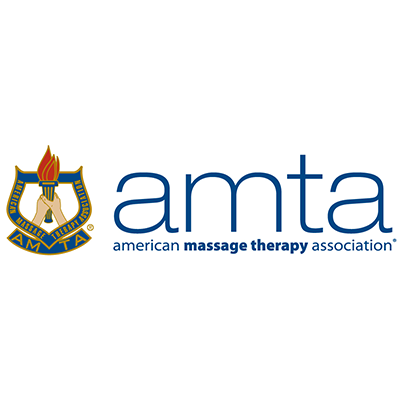A Growing Body of Research Supports the Positive Impact of Massage Therapy for Mental Health

In a time when the Anxiety and Depression Association of America (ADAA) ranks anxiety as the country’s most common mental illness – and depression as the leading cause of disability for people ages 15 to 441, people with mental health issues are turning to a range of wellness strategies, including massage therapy which has a positive impact on the body and mind. Explore recent research that supports the benefits of massage therapy for stress, anxiety and depression.
Studies on Massage for Stress and Anxiety
A recent study by German researchers indicated that short-term interventions such as massage therapy can robustly reduce stress on a psychological and physiological level by boosting the body’s principal engine for relaxation – the parasympathetic nervous system. In the study, researchers measured how massage can affect heart rate variability. When the parasympathetic nervous system is active, during rest and relaxation, the heart rate variability is high. The researchers found that just 10 minutes of massage created “significant increases” in heart rate variability.2
Another 2021 Mayo Clinic study showed positive results on the benefits of massage therapy for anxiety in preoperative surgical patients. After receiving a 15-minute non-therapeutic hand massage, patients experienced lower anxiety levels and increased satisfaction.3
New Research on Massage Therapy for Chronic Pain and Depression
Research also indicates that massage can improve mood and reduce depression in those living with chronic pain. In fact, a scientific journal “Brain Sciences” recently covered a 2020 trial on women with chronic back pain whose depressive symptoms and negative body image were significantly reduced after receiving slow, superficial strokes along the back, neck and dorsal limbs.4
In addition, a recent Australian pilot study examined the feasibility and acceptability of partner-delivered relaxation massage, and whether massage can reduce symptoms of prenatal anxiety, stress and depression. The results showed that massage therapy was linked to a large reduction in anxiety and depression symptoms and a moderate reduction of stress. Pregnant women who received massage therapy reported a positive benefit from massage of 78 mm (range 29 – 100) on a 100 mm visual analog scale.5
Massage For Youth Struggling with Mental Health Issues
Mental health issues are on the rise for children in the U.S. Many recent studies point to the benefits of using massage in addressing a range of psychological issues in youth, such as attention disorders, aggression, anxiety, depression and post-traumatic stress disorder. In a 2019 study on eating disorders and depression, researchers found that excessively low-dopamine levels were increased following one month of daily 20-minute massages.6
Another 2019 study compared the effectiveness of soft tissue manipulation and a relaxation technique (Jacobson’s progressive relaxation) in reducing anxiety levels in young adults. The researchers found that the level of perceived anxiety decreased “significantly” in the group receiving soft tissue manipulation.7
“Research on the efficacy of massage therapy for mental health continues to show great promise,” says Michaele Colizza, AMTA National President. “In fact, more and more consumers are turning to massage therapy as part of an integrative approach to care for improving mental health and well-being.”
It’s an Important Moment in Time for Massage for Mental Health
Over the last few years, the COVID-19 pandemic has had a marked effect on the country’s mental health. According to the U.S. Census Bureau, more than 42% of people surveyed reported symptoms of anxiety or depression during the pandemic. Researchers are concerned that the increase in mental health issues could linger long after the pandemic has subsided, and many integrative health experts believe that massage therapy can be an important part of the solution in helping alleviate stress, anxiety and depression.8
Research Citations
[1] Anxiety & Depression Association of America (ADAA): Facts & Statistics | Anxiety and Depression Association of America, ADAA
[2] University of Konstanz. “Ten minutes of massage or rest will help your body fight stress.” ScienceDaily. September 2020. http://www.sciencedaily.com/releases/2020/09/200918104305.htm.
[3] Zghihong, Bauer, Aaberg, Pool, Van Rooy, Schroeder, Finney. “Benefits of hand massage on anxiety in preoperative outpatient: A quasi-experimental study with pre- and post-tests.” https://pubmed.ncbi.nlm.nih.gov/32919894/
[4] Effect of Psycho-Regulatory Massage Therapy on Pain and Depression in Women with Chronic and/or Somatoform Back Pain: A Randomized Controlled Trial – PubMed (nih.gov)
[5]Hall HL, Munk NK, Carr BH, Fogarty SR, Cant RB, Holton SR, Weller CL, Lauche RM. Maternal mental health and partner-delivered massage: A pilot study. Women Birth. 2021 May;34(3):e237-47.
[6] Tiffany Field. “Pediatric massage therapy research: A narrative review.” Children (Basel) 2019 Jun; 6(6): 78.
[7] Wilczynska, Lysak-Radomska, Podczarska-Glowacka, Jolanta Zajt, Dornowski, Skonieczny “Evaluation of the effectiveness of relaxation in lowering the level of anxiety in young adults.” Int J Occup Med Environ Health2019;32(6):817-824.
[8] Vahration, Blumberg, Terlizzi, Schiller. “Symptoms of Anxiety or Depressive Disorder and Use of Mental Health Care Among Adults During the COVID-19 Pandemic” – United States, August 2020-February 2021. MMWR Morb Mortal Wkly Rep 2021;70:490-494. https://www.cdc.gov/mmwr/volumes/70/wr/mm7013e2.htm?s_cid=mm7013e2_w
